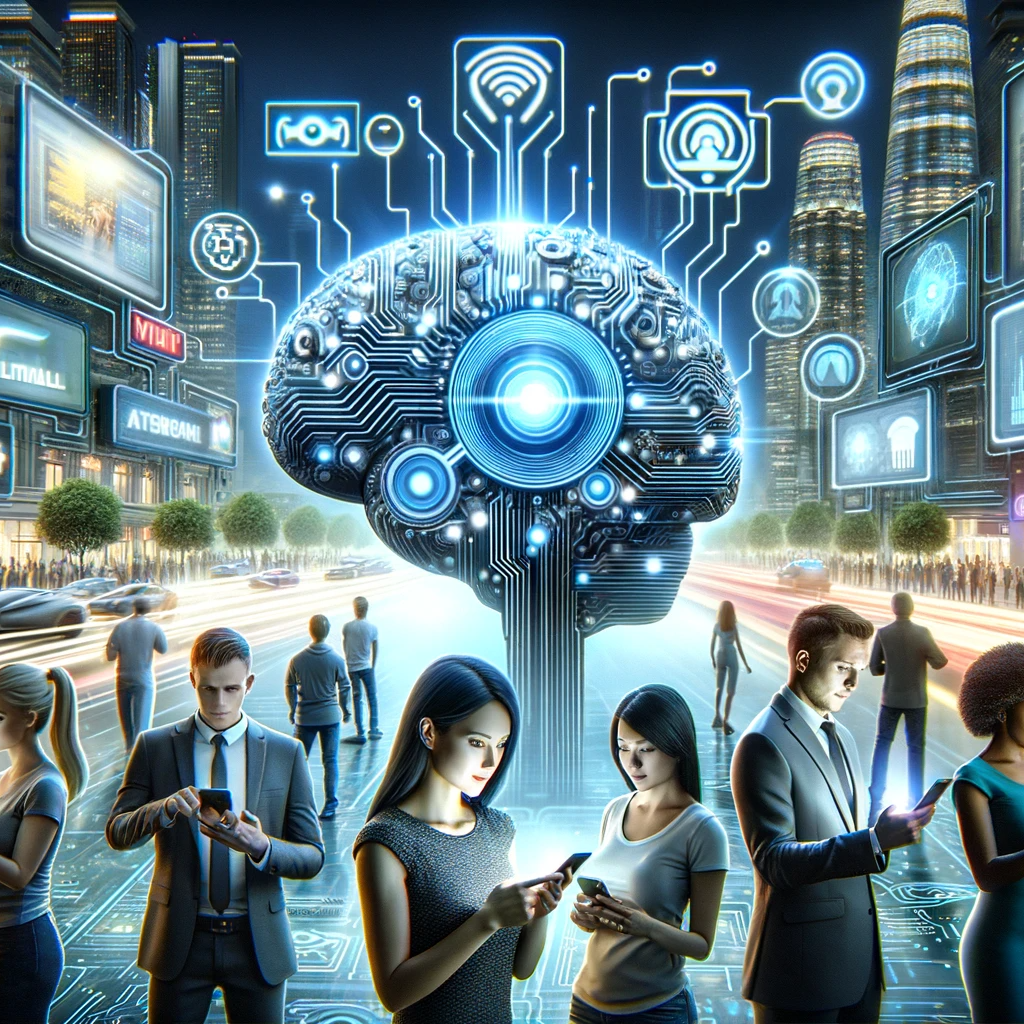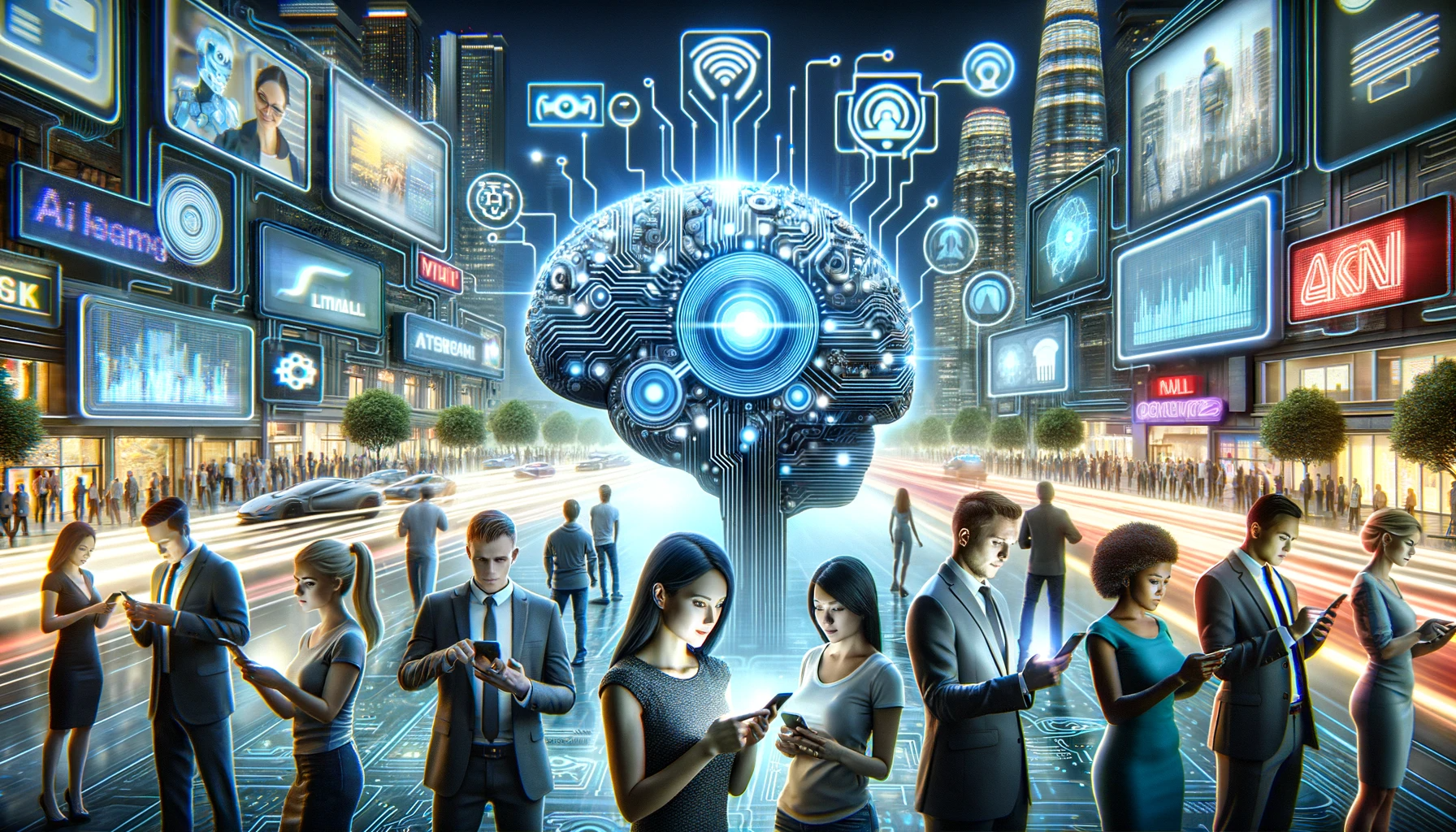Introduction
In the ever-changing world of marketing, AI and Machine Learning have emerged as powerful tools that can drive efficiency, enhance customer experiences, and unlock new possibilities. From data-driven personalization to automated advertising and beyond, the impact of AI and ML is undeniable. However, success in AI-driven marketing requires a balanced approach. Marketers must prioritize data quality, ethical considerations, and customer privacy. They should invest in technical expertise, adapt to evolving technologies, and carefully evaluate the costs and benefits.

How AI and Machine Learning are Shaping Personalized Marketing
In today’s fast-paced digital world, marketing has evolved from a one-size-fits-all approach to a highly personalized and targeted endeavour. Thanks to the advancements in Artificial Intelligence (AI) and Machine Learning (ML), businesses now have the tools to understand their customers on a deeper level and deliver tailored marketing experiences. In this blog, we will explore how AI and ML are revolutionizing personalized marketing strategies, the benefits they offer to businesses, and the ethical considerations that come with these technologies.
The Power of Personalization
Personalized marketing is all about connecting with customers on a personal level. It involves understanding their preferences, behavior, and needs to deliver content and offers that resonate with them. Gone are the days of generic email blasts and irrelevant advertisements. Today’s consumers expect brands to know them and provide a customized experience.
This shift towards personalization has been made possible by AI and ML. These technologies can process vast amounts of data, analyze patterns, and make predictions. For marketers, this means the ability to segment their audience into highly specific groups and create campaigns that speak directly to those segments. Whether it’s recommending products based on past purchases, sending personalized emails, or showing tailored ads, AI and ML are at the heart of these efforts.
How AI and ML Drive Personalization
Data Analysis
AI and ML excel at analyzing data. They can sift through customer data, including browsing history, purchase history, social media activity, and more, to identify trends and preferences. This allows marketers to gain insights into what customers want and predict their future behaviour.
Real-time Personalization
One of the key benefits of AI and ML in marketing is the ability to personalize content in real time. When a customer visits a website or interacts with an app, these technologies can immediately adjust the content and offers displayed based on the user’s behavior. This level of responsiveness ensures that customers are always presented with relevant information.
Predictive Analytics
AI and ML algorithms can forecast customer behaviour. For instance, they can predict which products a customer is likely to purchase next or when a customer might churn. Armed with these predictions, businesses can take proactive measures, such as sending targeted promotions or retention offers.
A/B Testing
AI-driven A/B testing takes personalization to the next level. Instead of testing different versions of a campaign on the entire audience, AI can test variations on specific segments. This means that different customer groups receive different messages, optimizing the effectiveness of each campaign.
Benefits of AI and ML in Personalized Marketing
The integration of AI and ML in personalized marketing offers several advantages for businesses:
Improved Customer Engagement
Personalized marketing creates a stronger connection between the brand and the customer. When customers feel understood and catered to, they are more likely to engage with the brand, leading to higher click-through rates, longer time spent on websites, and increased conversions.
Increased Sales
By delivering personalized product recommendations and offers, businesses can boost their sales. AI can analyze customer data to suggest products that align with individual preferences, increasing the likelihood of purchases.
Enhanced Customer Loyalty
When customers receive personalized experiences, they are more likely to become loyal to a brand. AI and ML help businesses build long-term relationships by continuously adapting to customer preferences and needs.
Cost Efficiency
Personalized marketing campaigns are more efficient in terms of marketing spend. Instead of broadcasting messages to a broad audience, businesses can target specific segments, reducing wasted resources.
Ethical Considerations
While the benefits of AI and ML in personalized marketing are clear, there are ethical considerations that must be addressed:
Data Privacy
Collecting and analyzing customer data for personalization raises concerns about data privacy. Businesses need to be transparent about data usage and obtain customer consent. Data should also be securely stored and protected from breaches.
Algorithmic Bias
AI algorithms can inherit biases present in the data they are trained on. This can result in unfair discrimination or exclusion of certain groups. It’s crucial for businesses to regularly audit their algorithms and mitigate bias to ensure fairness.
Overpersonalization
There is a fine line between personalization and intrusion. Businesses must strike a balance and avoid overpersonalization that makes customers uncomfortable or raises privacy concerns. Respecting customer boundaries is essential.
Consent and Control
Customers should have the option to opt out of personalized marketing or have control over the level of personalization they receive. Providing clear choices and easy opt-out mechanisms is necessary to respect individual preferences.
The Future of Personalized Marketing
As AI and ML continue to advance, the future of personalized marketing holds even more promise. Here are some trends and developments to watch out for:
Hyper-Personalization
Hyper-personalization takes personalization to the next level. Instead of segmenting audiences broadly, businesses will use AI to create highly individualized experiences for each customer. This could involve customizing not just product recommendations but also website layouts, content, and pricing.
Voice and Conversational AI
Voice assistants like Siri and Alexa have already started to play a role in personalized marketing. In the future, AI-powered chatbots and voice assistants will provide personalized recommendations and support, making the customer experience more conversational and natural.
Predictive Customer Service
AI will be used to predict when a customer might encounter an issue or have a question. This proactive approach to customer service will enable businesses to reach out to customers before problems arise, enhancing customer satisfaction and loyalty.
Augmented Reality (AR) and Virtual Reality (VR)
AR and VR technologies will enable immersive and highly personalized marketing experiences. Customers can virtually try on products, tour real estate properties, or experience destinations, all tailored to their preferences and interests.
Enhanced Data Security
With the increasing importance of data privacy, AI and ML will also play a significant role in enhancing data security. Businesses will use these technologies to detect and respond to potential breaches, ensuring that customer data remains protected.
Sustainability and Ethical Marketing
AI can also be used to personalize marketing messages based on customers’ values and preferences, including their interest in sustainability and ethical practices. This approach aligns marketing efforts with the evolving social consciousness of consumers.
Case Studies
Let’s take a look at a couple of real-world examples of how AI and ML are already shaping personalized marketing:
Netflix
Netflix is a prime example of a company that relies heavily on AI and ML for personalization. Its recommendation system analyzes user behaviour, viewing history, and preferences to suggest movies and TV shows. This level of personalization keeps users engaged and subscribed to the platform.
Amazon
Amazon’s product recommendation engine is powered by AI and ML. When you visit Amazon’s website, you’re greeted with product recommendations based on your past purchases and browsing history. This not only boosts sales but also enhances the overall shopping experience.
Conclusion
AI and ML have ushered in a new era of personalized marketing, where businesses can connect with customers on a deeper level, anticipate their needs, and deliver tailored experiences. While the benefits are substantial, ethical considerations such as data privacy and algorithmic bias must be carefully addressed to ensure responsible use of these technologies. Also’ visit my post. http://AI Machine Learning.


Add a Comment